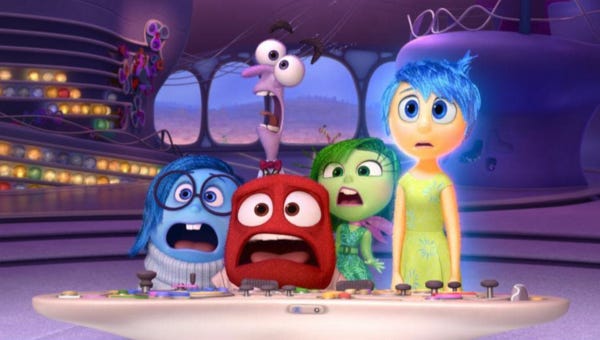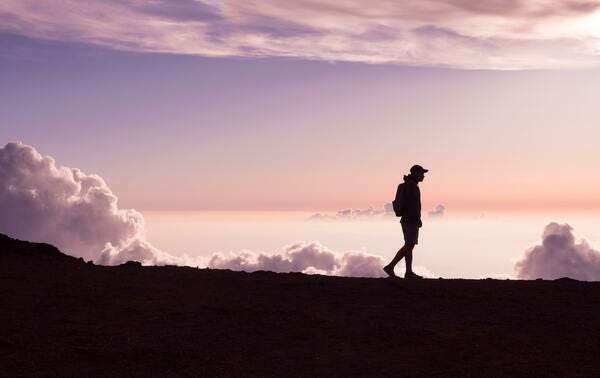Enskilment and uncertainty
Issue 3
This issue features:
Enskilment: an Ecological-Anthropological Worldview of Skill, Learning and Education in Sport by Carl Woods, James Rudd, Rob Gray and Keith Davids (2021).
Embracing uncertainty and a response-ability to the experiences of others - River Tiger Podcast with Dynamics Coaching and Carl Woods (2022).
Enskilment
“‘Understanding in practice’, by contrast, is a process of enskilment, in which learning is inseparable from doing, and in which both are embedded in the context of a practical engagement in the world.” Ingold (2000, p.416)
Learning is inseparable from doing. This line has always resonated with me in a profound way, and upon reflection, I can see how it has quietly, subconsciously shaped every experience I have chased and every version of myself that I’ve aspired to be.
When I started my education, I was the restless kid in class, itching to do something. When I finished school, I wanted to do everything, so I literally studied the body and the mind. After 15 years straight of playing cricket, I even left that behind to try and explore as many sports as possible.
After all, how can I help someone learn a new skill, expand their skillset, see the world in a new light if I haven’t done so myself?
Every time a new sporting season rolls around, I do my best to find the limits of my action capabilities and new tasks in which to challenge them. I often find that the hardest part about this is the hostile and obtrusive environment of community sport as an outsider looking in. Now, I have a way to conceptualise what I do so that people can know me better; I am on a constant journey of enskilment.
So what does that really mean?
Well, we have traditionally viewed motor skill learning almost exclusively from the POV of the organism, the individual, the performer. We have placed ourselves, as humans, at the centre of the universe that existed long before us and will continue to exist long after us. As such, this has biased the way we understand the world, as if its mere existence is to simply provide us with information that we need to process before it makes sense, before we can use it. Without the constructions of our own mental representations, we cannot possibly output an appropriate action.
In other words, we must know about the world through rules to effectively control our navigation through it. But the mountain was climbable before they carved steps into the rocks. The river was crossable before we learned to build bridges. And from the moment we learn how to balance on our wobbly, chubby legs for the first time as a mere baby, there would have to be a control centre in our brain (like in Inside Out!) that is transmitting these propositional commands about how to control the body.
Don’t worry, I’ve always struggled to see it like that too.
Thankfully, we are moving towards a different worldview of motor skill learning that fundamentally refutes the idea that skill and learning can be explained by ways of indirect symbolic representations of the world and mental computational processing.
Instead, it is an evolving and functionally adaptable fit that emerges between an organism and the constraints of their environment as they progressively attune to information that specifies opportunities for (inter)action.
Let me give you an example.
As an Australian who largely grew up in what is considered the ‘sunshine state’, the prospect of seeing snow is a big deal. Snow trips are few and far between (and not cheap!) so at most, I have probably ridden a snowboard for maybe 10 days in the past 5 years (excluding covid). I remember my first day on a hire board, trying to not fall on my face coming off the slowest chairlift on the beginner’s hill. That was all I could think about. After crawling away before the next chair arrived, I would strap up my bindings, stand up first go (if I was lucky), awkwardly snake across the hill and ‘brake’ by falling on my ass 🤣
This week was an entirely different story, from my approach dismounting the chairlift to the opportunities for (inter)action I found in my surrounds. I am entirely self-taught, maybe to my own detriment sometimes, but I find that the path of self-discovery is incredibly rewarding when you can track your progress and accept the nonlinear nature of progressing. Not only did I not fall off the chairlift once (woo!), but I also attempted so many obstacles and terrains that I would have previously avoided, through a self-assessment of my action capabilities, or not even have perceived in the first place!
I started to see little hips and jumps in the snow, sometimes built intentionally and others a natural consequence of many riders traversing the terrain. I started to attempt them, knowing absolutely nothing(!) about ‘how to jump’ beyond trying to make sure I landed my board back onto the snow in the ‘right’ direction.
I didn’t need to wait for this knowledge to be bestowed upon me, I was able to ‘grow’ it myself by actively finding my way through the performance landscape, even if it meant falling on my ass sometimes. There is certainly a benefit to being guided and supported by an experienced other, but their absence should not be a barrier to starting the exploration.
The moral of this self-deprecating story is, as Ingold (2018) so eloquently put, that the educative process:
“is about attending to things, rather than acquiring knowledge that absolves us of the need to do so; about exposure rather than immunisation”.
Learning is not about a process of enculturation, as manifested in rules, symbols or representations, but one of enskilment (Woods et al., 2021).
There is so much more to explore in this paper, but I will save that journey for another issue.
Embracing uncertainty and a response-ability to the experiences of others
This podcast episode had me in a trance. The hardest part about listening to such engaging and insightful conversation is that I can’t help but want to write it all down so I don’t forget it.
My neighbours may have seen me walking around the suburb with a book in hand, stopping to sit in the grass or benches to write furiously; this is what I was writing about.
The first gut-punch I received from this episode was the line:
Problem solver > answer knower
Now, there is no way the creators could have known it would have such a profound effect on me, but the heads up would have been nice. This line goes so much deeper than just the way we conceptualise skill and knowledge and expertise; it attacked the source of my anxiety disorder in many contexts.
Odd leap to make, I know, but there have been so many times where my (lack of) emotional regulation can be tied to this notion that I should have all of the answers, I always have. It might also tie a little too closely to anyone feeling the effects of gifted kid burnout after breezing through high school a little too easily and realising the real world is absolutely not the same. It has become so engrained that when someone asks me a question, I should have the answer, and when I don’t, I am at fault.
But the beauty of this thought is in its simplicity; there are so many things I will never know the answer to, and actually, people don’t really expect me to know the answers either, that is a self-constructed cage. If I can reinvent myself as a problem solver, down to my core, then the cage can become a window through which I can see a completely different world.
The second gut punch came from a very profound but almost off-hand comment by Marianne which was terrifyingly accurate:
Why are we more comfortable with being outraged about the treatment of horses than children in sport?
Boy, did I stop mid-stride to let that sink in.
Photo by Jad Limcaco on Unsplash
I think this question has haunted my subconscious for a long time, and it manifests in my passion for coaching and community sport. The reason I am so drawn to a contemporary worldview of skill and learning is to combat the harm I have witnessed over the years at the hands of oppressive, and sometimes aggressive, behaviours from coaches which have conditioned young people into compliance.
And it is not their fault, not entirely. We are a function of the system we exist in but it is already getting very tiring to constantly fight that system in the interest of providing the best learning environments for everyone when that should be a fundamental right.
Anyone who engages in sport should feel like their development is worthwhile, that their potential is worth exploring, that they have a talent within them that can be nurtured. And we take that dream away in early adolescence because our communities are not well equipped to support these dreams, however big or small.
I couldn’t help but smile at Carl’s response, and the passion with which he quoted Johan Fallby’s powerful mantra of “as many as possible, for as long as possible, in the best environment possible”.
That is an aspiration we should all be pushing towards. What is not to admire about wanting to establish a genuine relationship with people, with horses we work with? Why not? Name one good reason why wanting to establish a really profound relationship with others is a ‘bad’ thing?
In response, I don’t think there is anything inherently bad with this aspiration but I think it goes against everything that the high performance sport currently believes and perpetuates: that this connection, this nonlinear, ongoing, developmental approach and elite performance are mutually exclusive.
It is all admirable, but at the moment, for the coaches on the ground who are fighting this fight, it is an aspirational journey against the current, and it’s getting harder and harder to keep swimming.
But on the days I don’t feel like swimming anymore, I am reminded of all the good things that have come from my unwavering belief in this notion that we all deserve the best experience possible. They are quiet moments, memories that gently bubble to the surface of entire afternoons filled with laughter, triumphant noises that only come after beating a previously unbeatable challenge, young adults getting back into a sport that has haunted them since adolescence in the hope of rewriting their relationship with the game.
I guess what I’m trying to say is it is absolutely worth aspiring to a sporting world where we all feel empowered and safe and capable of more than we know. And for now, I’ll keep swimming upstream to bring that joy to others, as I am sure many other coaches will too.




really love this post! didn't know there was such a thing as a second hand gut punch! thank you for swimming upstream!!
Recommend reading Carol Dweck's book Mind Set